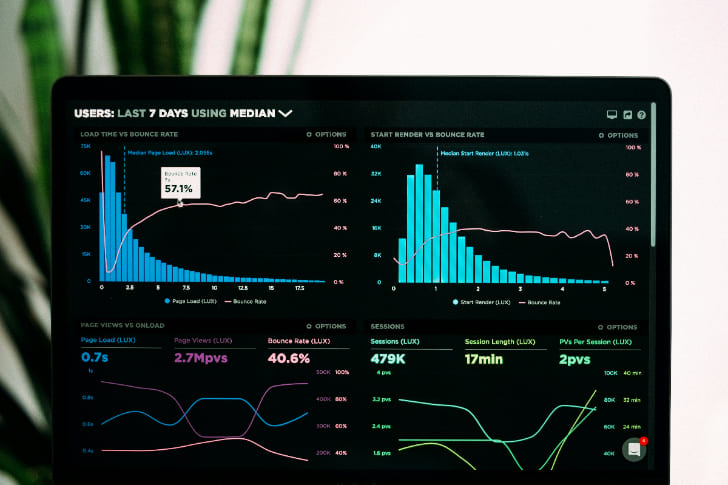Running a business comes with risks. No matter the size of your company or the industry you operate in, there’s always a possibility of lawsuits, accidents, or claims arising from your operations. Business liability insurance is designed to protect your company against these risks, helping safeguard your financial stability and reputation.
Understanding liability insurance and its nuances is essential for every business owner.

This article explores 10 crucial things you must know about business liability insurance to make informed decisions and protect your company.
1. Business Liability Insurance Protects Against Lawsuits
Business liability insurance provides coverage when your business is held legally responsible for injuries, property damage, or other claims. Without insurance, legal claims can result in costly settlements, legal fees, and even bankruptcy in severe cases.
Example: A customer slips on a wet floor in your store and sues your business for medical expenses. General liability insurance would cover the legal fees and settlement costs.
Liability insurance ensures that a single accident or lawsuit does not threaten the survival of your business.
2. There Are Different Types of Liability Insurance
Business liability insurance is not a one-size-fits-all policy. Different types of coverage address different risks:
- General Liability Insurance: Covers bodily injury, property damage, and personal or advertising injury caused by your business operations.
- Professional Liability (Errors & Omissions) Insurance: Protects businesses providing professional services from claims of negligence, mistakes, or failure to deliver services.
- Product Liability Insurance: Covers damages or injuries caused by products your business manufactures, sells, or distributes.
- Employment Practices Liability Insurance (EPLI): Protects against employee-related claims such as discrimination, harassment, or wrongful termination.
- Cyber Liability Insurance: Covers data breaches, cyberattacks, and privacy violations.
Tip: Assess your business operations and risks to select the liability coverage types most relevant to your company.
3. Liability Insurance Covers Legal Fees and Settlements
One of the primary benefits of liability insurance is that it covers not only settlements but also legal defense costs, which can be substantial.
Example: A client sues your consulting firm for alleged mistakes in your advice. Legal defense fees can quickly escalate to tens of thousands of dollars. Liability insurance pays for attorney fees, court costs, and any settlements or judgments up to your policy limit.
This financial protection allows your business to continue operating even during costly legal disputes.
4. General Liability Insurance Covers Common Risks
General liability insurance is the most basic and widely purchased form of liability coverage. It typically covers:
- Bodily injury to third parties on your premises
- Property damage caused by your business operations
- Personal or advertising injury, including libel or slander claims
Example: A customer trips over equipment in your warehouse. General liability insurance can cover medical bills, legal fees, and potential settlement costs.
Tip: Even if your business seems low-risk, general liability coverage is highly recommended as it protects against everyday incidents.
5. Professional Liability Protects Service-Based Businesses
Service-based businesses, such as consultants, accountants, or software developers, face unique risks. Errors, omissions, or professional negligence can lead to lawsuits claiming financial damages.
Example: A marketing agency provides flawed advice to a client that results in lost revenue. Professional liability insurance (errors & omissions) can cover legal fees and settlements.
Tip: If your business provides advice or professional services, professional liability insurance is essential to protect against claims that general liability does not cover.
6. Product Liability Protects Manufacturers and Retailers
If your business manufactures, sells, or distributes products, product liability insurance is critical. It protects against claims of injury or property damage caused by your products.
Example: A toy manufacturer sells a defective toy that causes injury to a child. Product liability insurance covers legal fees, medical expenses, and settlements.
Tip: Product recalls can be expensive, so some businesses also consider recall insurance in addition to standard product liability coverage.
7. Employment Practices Liability Protects Against Workplace Claims
Workplace disputes can result in lawsuits from employees alleging discrimination, harassment, wrongful termination, or wage violations. Employment practices liability insurance (EPLI) provides coverage for these claims.
Example: An employee sues your company for alleged gender discrimination. EPLI can cover legal defense, settlements, and any required damages.
Tip: Implementing strong HR policies and training programs can reduce the likelihood of EPLI claims and may lower premiums.
8. Cyber Liability Insurance Protects Against Data Breaches
In today’s digital world, businesses store sensitive customer data, making them targets for cyberattacks. Cyber liability insurance covers:
- Data breaches and hacking incidents
- Ransomware attacks and extortion payments
- Legal fees related to privacy violations
- Customer notification costs and credit monitoring
Example: A hacker gains access to your client database, exposing personal information. Cyber liability insurance covers remediation, legal fees, and potential settlements.
Tip: Even small businesses can face cyber risks. Cyber liability insurance is essential for companies handling customer or employee data.
9. Premiums Depend on Business Type and Risk
Insurance premiums are influenced by your business’s industry, size, and risk profile. Factors include:
- Number of employees
- Revenue and sales volume
- Type of products or services offered
- Claim history and past lawsuits
- Location and legal environment
Example: A construction company faces higher premiums due to greater risk of accidents and property damage than a small consulting firm.
Understanding how premiums are calculated helps businesses budget for insurance and evaluate risk management strategies.
10. Policies Should Be Regularly Reviewed and Updated
As your business grows or changes, your liability coverage needs may evolve. Regularly reviewing your policy ensures that coverage:
- Matches your current operations and revenue
- Includes new services, products, or locations
- Adjusts limits and deductibles to reflect your risk tolerance
- Incorporates additional coverage as needed, such as cyber liability or EPLI
Example: Expanding from local operations to nationwide sales may require higher liability limits and additional coverage for interstate legal risks.
Regular policy reviews prevent underinsurance and ensure comprehensive protection.
Additional Considerations for Business Liability Insurance
- Riders and Endorsements: Customize policies with additional coverage for unique risks or high-value exposures.
- Risk Management: Implement safety protocols, employee training, and compliance programs to reduce claims and premiums.
- Bundling Policies: Combining general liability with other commercial insurance, such as property or auto insurance, may lower costs.
- Claims Handling: Choose insurers with a reputation for prompt and fair claims processing.
- Policy Limits: Ensure limits are sufficient to cover potential lawsuits and liabilities.
Tip: Combining insurance with proactive risk management strengthens your business’s overall protection.
Common Misconceptions About Business Liability Insurance
- “My business is too small to need liability insurance.”
Even small businesses face legal risks from customers, employees, or product issues. - “General liability insurance covers everything.”
General liability does not cover professional errors, employee disputes, or cyber risks. Specialized policies are needed. - “Insurance is too expensive.”
Premiums vary, and policies can be customized to fit your budget while providing essential protection. - “I don’t need liability insurance if I have a safe workplace.”
Accidents and lawsuits can occur even in well-managed businesses. Liability insurance provides financial security regardless of precautions.
Benefits of Business Liability Insurance
Business liability insurance provides:
- Financial Protection: Covers legal fees, settlements, and damages that could otherwise bankrupt your business.
- Peace of Mind: Allows you to focus on growth and operations without fearing lawsuits.
- Credibility: Clients, partners, and lenders often prefer or require insured businesses.
- Compliance: Helps meet legal requirements and contractual obligations.
- Customizable Protection: Policies can be tailored to specific industries and risks.
Example: A tech startup suffers a client data breach. With professional and cyber liability insurance, legal fees, settlements, and notification costs are covered, allowing the business to continue operations.
Choosing the Right Business Liability Insurance Policy
When selecting a policy, consider:
- The nature of your business and associated risks
- Required coverage types for compliance and operations
- Premiums and deductibles within your budget
- Insurance company reputation and claims handling
- Limits and exclusions relevant to your operations
Tip: Work with an experienced insurance broker or agent to assess your risks, compare policies, and ensure comprehensive protection.
Conclusion
Business liability insurance is a vital tool for protecting your company against lawsuits, accidents, and financial losses. From general liability to professional, product, employment practices, and cyber liability, insurance shields your business from unforeseen events that could threaten its survival.
By understanding the 10 key aspects of business liability insurance, you can make informed decisions, manage risks effectively, and ensure that your company is well-protected.
Key Takeaways:
- Liability insurance protects your business from lawsuits and claims.
- Different types of coverage address different risks.
- Insurance covers legal fees, settlements, and judgments.
- General liability covers common risks like bodily injury and property damage.
- Professional liability protects service-based businesses.
- Product liability protects manufacturers and retailers.
- Employment practices liability covers workplace-related lawsuits.
- Cyber liability protects against data breaches and cyber threats.
- Premiums depend on business type, size, and risk exposure.
- Policies should be regularly reviewed and updated to reflect business growth and changes.
Business liability insurance is an investment in your company’s future, providing protection, peace of mind, and the ability to operate confidently in an unpredictable world.









Leave a Reply